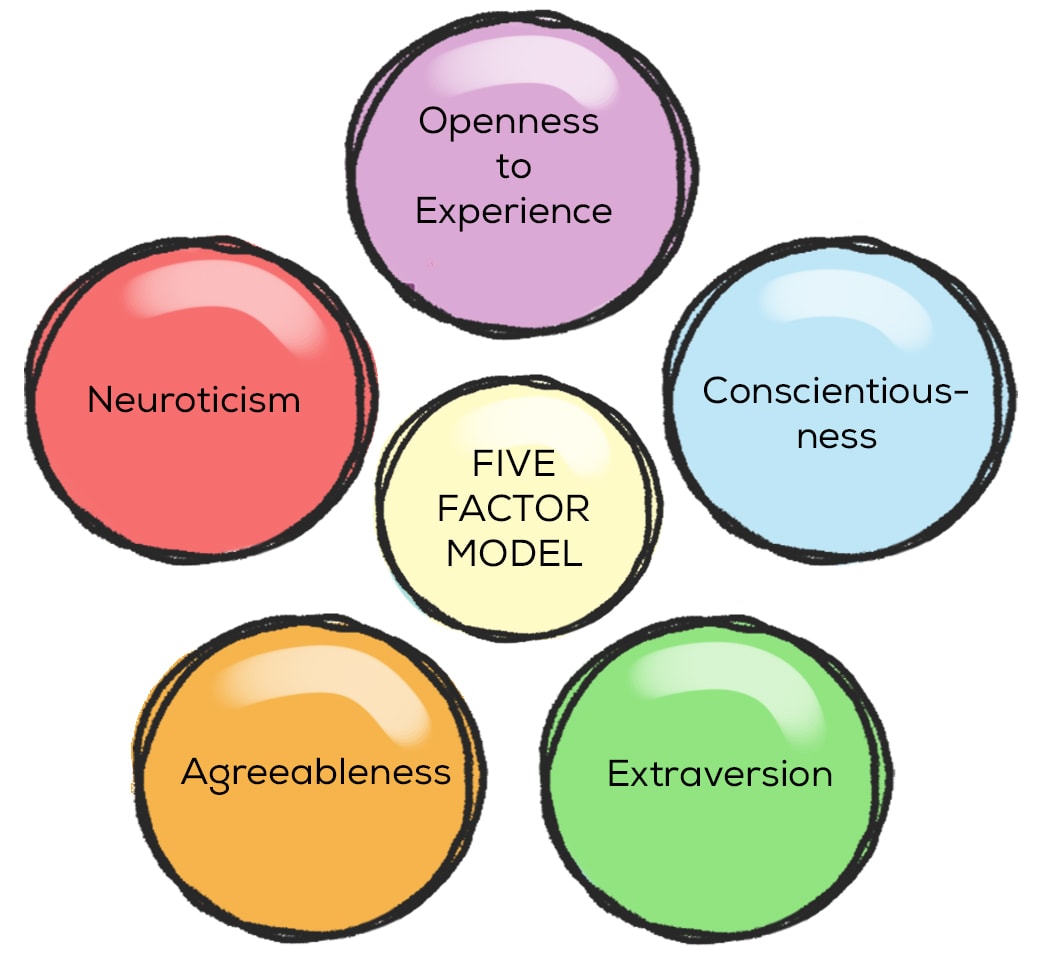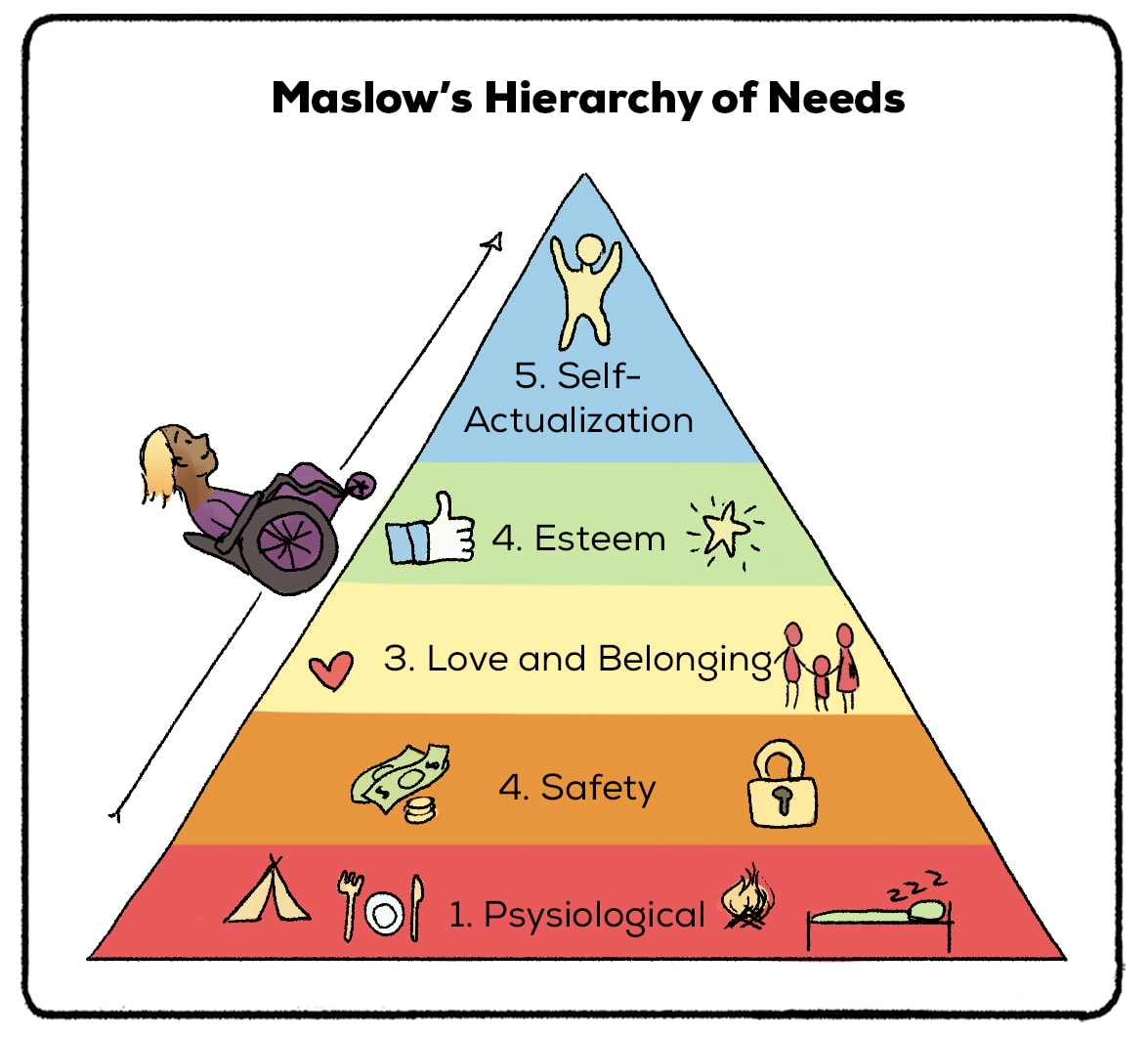Think of someone who has a big personality. Think of someone who has a pretty terrible personality. Now think of your personality. What would someone say about it?
Personality refers to the unique and enduring traits, behaviors, thoughts, and emotional patterns that characterize individuals and distinguish them from others. It encompasses a person's distinctive way of interacting with the world, forming relationships, and responding to various situations. Personality is often considered a stable and consistent aspect of an individual, influencing their attitudes, values, and overall identity.
Psychologists don't just study how we make decisions or how we think. They also look at how our mind influences our personality. But no two psychologists have the same theories about how personalities can be categorized or how they are developed!
How Many Personality Theories Are There?
Most personality psychologists would identify four or five different types of personality theories. These theories include trait theories, behavioral theories, psychodynamic theories, and humanist theories. These types of personality theories reflect larger fields of study within psychology and continue to evolve today.
Trait theories
How would you describe someone’s personality?
You might say someone is “funny” or that they’re “brave.” They’re sociable, quiet, or aggressive. These are all traits, qualities, and characteristics a person may have.
Many personality theories focus specifically on traits. This includes Gordon Allport’s work in the early 1900s. Allport was considered one of the first personality psychologists. He proposed that there were over 4,000 personality traits that made someone unique.
Psychologist Hans Eysenck suggested that instead of 4,000 traits, it was best to focus on just three:
- Extraversion-introversion
- Emotional stability-neuroticism
- Psychoticism
There is some variation in the number of traits psychologists feel can determine what makes a person unique.
One of the most popular ideas in trait theory is the Big Five or OCEAN. Many psychologists from the 1940s and beyond have worked on this five-factor model of personality. Today, these factors include:
- Openness
- Conscientiousness
- Extraversion
- Agreeableness
- Neuroticism

Social Cognitive Theories
Many psychologists argue that personality is more than just a list of traits. Traits may influence thoughts, perceptions, and behavior. The theories on how behavior and thinking play into personality have come a long way.
Before social cognitive theories, behavioral theories of personality dominated the field. Psychologists like B.F. Skinner and Pavlov believed that our behavior was learned. They neglected, however, to consider our inner monologues or thought processes.
Social cognitive theories have since replaced behaviorism. Albert Bandura, for example, used his infamous Bobo Doll experiment to show how children learn by observing others. Attribution theories look at the way that we explain another person’s behavior. Let’s say that someone believes that adultery is the result of being a bad person. How might this attribution influence their behavior?
Psychodynamic theories
Social cognitive theories take thought processes into account. Not all psychologists believe that the conscious mind can explain all behavior and personality traits.
Sigmund Freud pioneered psychodynamic theories of personality. He believed that the personality was not something that just appeared on the surface of our consciousness. The personality comprises three parts, two hidden in the unconscious mind.
These three parts include the id, the superego, and the ego. The id wants to act upon aggressive life-or-death instincts. The superego wants to adhere to the rules of society. The ego has some negotiation to do between the other two parts of the personality.
Followers of Freud, including Carl Jung, have tweaked these ideas. Jung believed that the unconscious contained a collective unconscious in every person. The collective unconscious contained the memories and traumas of our ancestors. These personal childhood memories largely influenced conscious decisions and behaviors.
Although Freud’s theories are largely rejected, psychodynamic theories are still taught in schools to psychology students. They had a massive impact on psychology and how we conduct therapy. We might not have cognitive behavioral therapy if we didn’t have Freud’s earlier versions of talk therapy.
Humanist theories
Some psychologists believe that the past, including repressed memories or trauma, drives behavior. Other psychologists believe that traits, largely developed from experiences and knowledge, drive behavior. But what if people were driven by the future instead of the past?
This question may be posed by psychologists taking a humanist perspective. Humanist theories are relatively new to psychology, but they provide a breath of fresh air. Our personality isn’t totally composed of childhood trauma or skewed perceptions we made as a child. Humanist theories suggest that reaching our full potential may also be a driving force.
Take Abraham Maslow’s Hierarchy of Needs. Maslow is considered one of the first humanist psychologists. He believed that if humans could fulfill their fundamental needs, such as having access to essential elements like food, clean water, and air, securing safe shelter, and maintaining basic health and safety, they would then embark on a journey toward self-actualization and personal growth. But until those “lower” needs were satisfied, people would prioritize behaviors that led to satisfaction. A person may not try to better themselves if they are worried about where their next meal is coming from.

How Are Personality Theories Used?
Reddit user lvrcalii shared their experiences using personality theories:
"I work in psychiatry. Within psychiatry, MBTI is controversial and considered part of personality theory. I personally use many modalities in my therapy sessions including CBT and it's subtypes, family systems, trauma-based, and psychodynamic. I also integrate a smidge of personality theory for some."
Not all therapists will agree with lvrcalii, but their input shows how important personality theory can be to people looking to understand their minds and how it affects their everyday decisions.
Why Are Personality Theories Important?
“Personality” is a big word. It influences just about every social interaction. You may not want to work with someone because of their personality. A group may appoint a leader because of their personality. Personality tends to be the top thing that people consider when going on a first or second date with someone.
However, psychologists throughout modern history have looked beyond the definition of personality. They’ve attempted to explain why we develop individual personalities. How do we think and behave differently than the people around us? How much does biology play into the formation of personality? How much does our environment play into it?
There is no one answer to these questions. This is a broad overview of popular personality theories from the past few decades. There is much more to learn about personality and more to explore if you want to learn where today’s most popular theories come from!
